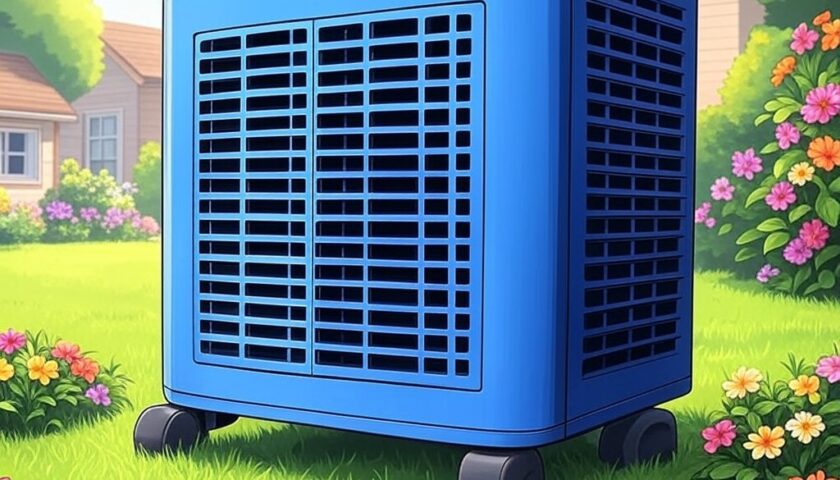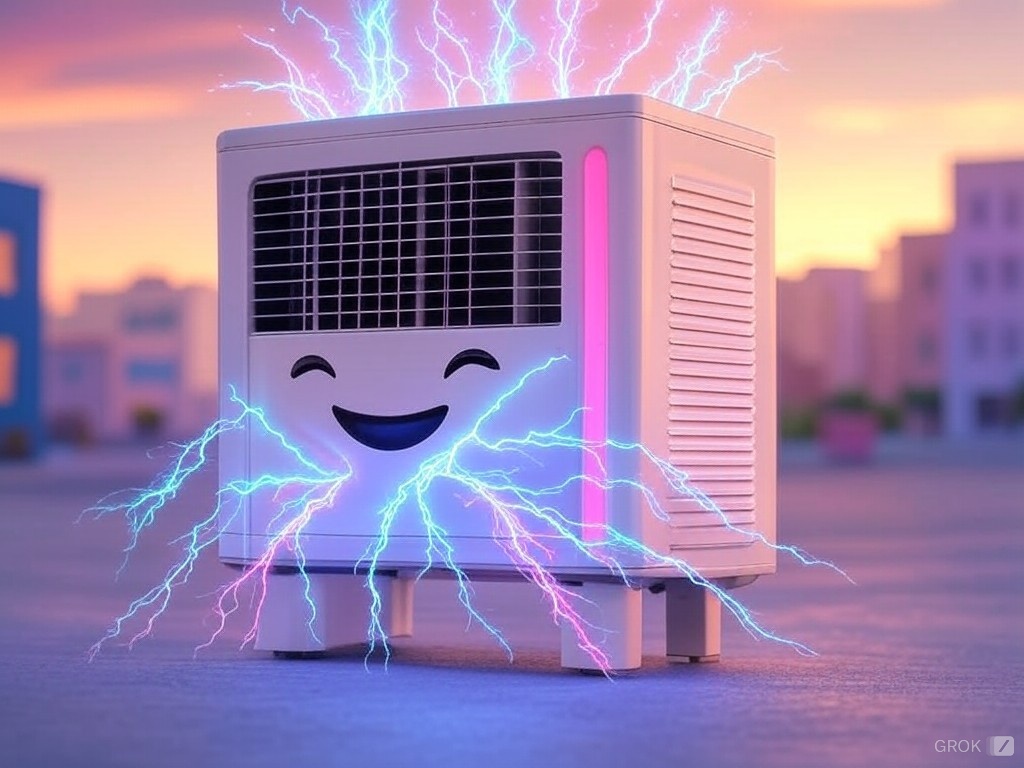Top HVAC Systems for Optimal Home Comfort
Home comfort is a top priority for every homeowner. It’s about more than just temperature control.
It’s about creating a living space that feels just right. A place where the air quality is healthy and the humidity levels are balanced.
This is where your HVAC system comes into play. HVAC stands for Heating, Ventilation, and Air Conditioning. It’s the system that keeps your home comfortable and your air clean all year round.
But not all HVAC systems are created equal. The best HVAC system for your home depends on a variety of factors. These include your local climate, the size of your home, and your specific comfort needs.
In this guide, we’ll explore the top HVAC systems for optimal home comfort. We’ll help you understand what to look for in an HVAC system and how to find a trusted local expert in Northern Alabama.
Let’s dive in and find the best HVAC system for your home.
Understanding HVAC Systems and Your Home’s Needs
Every home has unique HVAC requirements. Understanding your home’s specific needs is crucial. A well-suited HVAC system enhances comfort and efficiency.
The Northern Alabama climate poses particular challenges. This region’s humid summers demand reliable and effective cooling systems. Proper humidity control is essential to prevent discomfort and maintain indoor air quality.
Considering these factors helps tailor your HVAC system choice. Home size, layout, and insulation play a role, too. An expert assessment ensures you’re making the right decision.
Choosing the right system impacts energy usage and comfort. With the right information, you can make informed choices. Let’s explore how different systems work to meet your specific needs.
The Role of HVAC in Home Comfort
The HVAC system is your home’s heart. It regulates temperature and manages air quality, keeping the indoor environment comfortable year-round.
It plays a vital role in energy efficiency. An effective HVAC system balances heating, cooling, and ventilation. This ensures comfort and lower utility bills.
By understanding its role, you can prioritize maintenance. This guarantees long-lasting comfort and healthy indoor air.
Assessing Your Home’s HVAC Requirements
Understanding what your home needs from an HVAC system is key. First, consider your home’s size and layout. Larger homes may need more powerful systems.
Next, think about any areas prone to drafts or heat loss.
Finally, consider your preferences for temperature control. For example, do you prefer smart thermostats?
These factors guide your choices:
- Home size and layout
- Insulation and draft-prone areas
- Personal comfort and technology preferences
By assessing these requirements, you ensure your HVAC system meets both personal and structural needs. Consulting with a professional can offer valuable insights.
HVAC System Types and How They Work
Understanding different HVAC systems is crucial. Each type offers unique benefits and operates in distinct ways. Knowing these can help choose the right one for your home.
Central air conditioning is a popular choice. It efficiently cools entire homes, making it ideal for larger spaces. It works through a system of ducts.
Heat pumps stand out for their versatility. They offer both heating and cooling. They are particularly efficient in moderate climates, making them suitable for many homes.
Ductless mini-splits provide flexibility. They’re excellent for zoning, allowing independent temperature control in various rooms. This is ideal for homes with diverse cooling needs.
Central Air Conditioning Systems
Central air conditioning systems are a staple in many homes. They use a network of ducts to distribute cool air evenly. This is particularly beneficial for homes with large, open spaces.
These systems are known for their efficiency. They can cool multiple rooms simultaneously, ensuring comfort throughout your house. However, regular maintenance is key to keeping them operating smoothly and efficiently.
Heat Pumps for Efficiency and Versatility
Heat pumps are known for their dual functionality. They provide both heating and cooling by transferring heat rather than generating it. This makes them highly energy efficient.
Their versatility makes them suitable for moderate climates like Northern Alabama. They offer significant energy savings, especially in areas where both heating and cooling are needed year-round. This adaptability makes them a smart choice for homeowners seeking efficiency.
Ductless Mini-Split Systems for Targeted Comfort
Ductless mini-split systems offer personalized comfort. These systems do not rely on ducts and allow for individual room temperature control. This makes them perfect for adding comfort to rooms without existing ductwork.
They are easy to install and can be used in both heating and cooling modes. Their targeted approach ensures energy efficiency by allowing you to condition only the spaces in use. This system is ideal for homes with varying comfort needs.
Furnaces and Boilers for Reliable Heating
Furnaces and boilers are traditional choices for heating. Furnaces heat air and distribute it via ducts, while boilers use hot water or steam for radiant heat.
These systems are known for their reliability. They operate effectively during cold months, providing steady warmth. Regular maintenance ensures they perform at peak efficiency.
Their robust design makes them suitable for colder climates. While not needed year-round in all areas, their reliability ensures comfort during even the chilliest days.
Selecting the Best HVAC System for Northern Alabama’s Climate
Northern Alabama’s climate poses unique challenges. Humidity and temperature swings require a tailored approach. Picking the right HVAC system is crucial for comfort.
Consider systems that excel in humidity control. Efficient temperature regulation is also a priority. Look for systems offering advanced technology and energy efficiency.
Here’s a shortlist to guide your decision:
- Central Air Conditioners: Great for whole-house cooling.
- Heat Pumps: Offer all-in-one heating and cooling.
- Ductless Mini-Splits: Perfect for zoned comfort.
- Furnaces and Boilers: Reliable heat during cooler months.
Selecting the best system ensures comfort through all seasons. It also supports energy savings and environmental responsibility.
Managing Humidity with the Right HVAC System
Humidity can be a concern in Northern Alabama. It affects comfort and can harm your home. Choosing the right HVAC system helps manage this.
Look for systems with dehumidification capabilities. Heat pumps and certain air conditioners excel here. They remove excess moisture, keeping your home comfortable and safe.
HVAC Systems for New Construction: What to Consider
Building a new home offers flexibility. This is an excellent opportunity to choose the best HVAC system. Think about long-term efficiency and comfort.
Consider installing modern systems like ductless mini-splits. They provide targeted heating and cooling, making them adaptable to your new home’s layout. Evaluate energy ratings to ensure cost-effective operation.
Ultimately, the right choice will support your home’s comfort and efficiency from day one.
Energy Efficiency and Cost Savings
Investing in an energy-efficient HVAC system pays off. It reduces your utility bills while enhancing comfort. But what should you look for?
Start with energy ratings. High efficiency means less energy use and more savings. Efficient systems also benefit the environment by reducing emissions.
Here’s a list of key aspects to consider:
- SEER and AFUE Ratings: Higher numbers indicate better efficiency.
- Energy Star Certification: A trusted mark of efficiency.
- Smart Thermostats: Adjust settings automatically for optimal use.
Consider these factors for both immediate and long-term savings on energy costs.
Understanding SEER and AFUE Ratings
SEER and AFUE ratings assess HVAC efficiency. SEER, or Seasonal Energy Efficiency Ratio, measures cooling efficiency. The higher the SEER, the more energy-efficient the system. AFUE, or Annual Fuel Utilization Efficiency, applies to heating systems. It indicates how efficiently a furnace converts fuel to energy.
Consider these ratings when selecting an HVAC system. They impact your energy use and bills. A system with higher ratings will usually save more money over time.
Balancing Upfront Costs with Long-Term Benefits
Choosing an HVAC system involves balancing costs. Upfront expenses might be high, but efficient systems save money over time. Consider long-term savings from reduced energy use.
Efficient systems often qualify for rebates and incentives. These can offset initial costs, making the investment more affordable. Also, reliable systems tend to require less maintenance and have a longer lifespan.
When selecting an HVAC system, weigh the initial cost against long-term benefits. Focus on efficiency, rebates, and potential savings for the best value over time.
Installation and Maintenance: Ensuring Peak Performance
A well-installed HVAC system is crucial for optimal performance. Professional installation prevents future issues and ensures longevity. Skilled technicians adjust your system for maximum efficiency.
Here are some reasons to choose professional installation:
- Ensures correct sizing and placement for efficiency.
- Prevents costly future repairs and maintenance.
- Protects manufacturer warranties that may require professional setup.
Ongoing maintenance is equally vital. Seasonal check-ups can catch small problems early. This proactive approach keeps your system running smoothly.
The Importance of Professional Installation
Professional installation sets the foundation for a reliable HVAC system. Experts ensure the system fits your home’s unique needs. Proper installation minimizes energy loss and enhances efficiency.
Incorrect installation can lead to higher energy bills and system failures. Professionals have the tools and knowledge to avoid such pitfalls. They ensure your system operates at peak performance, saving you money and stress in the long run.
Regular Maintenance and Seasonal Check-Ups
Regular maintenance is key to a healthy HVAC system. Routine check-ups enhance performance and extend lifespan. They involve cleaning, inspecting, and tuning the system.
Seasonal check-ups can prevent major breakdowns. Addressing minor issues early avoids expensive repairs later. Regular maintenance also keeps energy efficiency high, ensuring comfort without wasting resources.
Schedule check-ups with a trusted local expert. This proactive care keeps your system running its best through the years.
Finding a Trusted Local HVAC Expert
Selecting the right HVAC expert in Northern Alabama is crucial. Experience and local knowledge ensure better service. Start by seeking recommendations and performing background research.
Consider the following when evaluating experts:
- Check certifications and licenses.
- Look for positive customer reviews and testimonials.
- Ensure they offer a range of services, including maintenance and repairs.
Personalized service should be a priority. A good provider tailors solutions to fit your specific needs. This attention to detail leads to long-term satisfaction.
Local experts understand the unique climate challenges. They offer solutions tailored to your comfort needs in Northern Alabama.
Evaluating HVAC Service Providers
When choosing an HVAC service, consider their track record. Look at their experience and expertise in the field. The longevity of the business often reflects reliability and competence.
Communication is another critical factor. A quality provider listens and answers your questions thoroughly. This helps ensure that your needs and expectations are met.
The Value of Personalized Service and Community Trust
Personalized service enhances the overall HVAC experience. A provider who knows your home’s unique needs can offer the best solutions. This level of service builds trust and satisfaction.
Community trust is valuable in choosing a service provider. Local companies understand regional climate challenges. Their vested interest in serving neighbors often results in superior service and commitment.
Conclusion: Achieving Home Comfort with the Best HVAC System
Finding the best HVAC system transforms home comfort. It ensures efficiency, reliability, and peace of mind. Assessing needs and selecting the right system are crucial steps.
Trust in the expertise of a reliable provider. This partnership not only improves system performance but also supports long-term satisfaction. Together, these elements ensure a comfortable and welcoming home environment.



